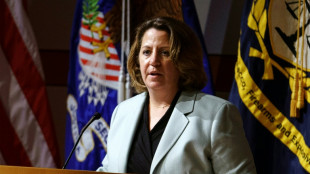
-
 England still have 'another peak to climb' after Women's Rugby World Cup triumph
England still have 'another peak to climb' after Women's Rugby World Cup triumph
-
Real Madrid's Carvajal Clasico doubt after calf injury

-
 Moldova votes in tense polls, torn between EU and Russia
Moldova votes in tense polls, torn between EU and Russia
-
Alcaraz makes light of injury to reach Japan Open semis

-
 Slips, salt and stripes: key looks from Milan fashion week
Slips, salt and stripes: key looks from Milan fashion week
-
Gauff digs deep to keep China Open title defence alive

-
 Russian missile and drone barrage kills four in Kyiv
Russian missile and drone barrage kills four in Kyiv
-
Massive crowd, chaos preceded deadly India rally stampede

-
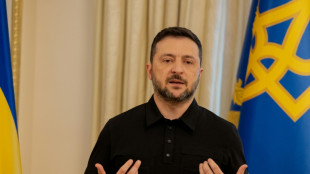 Russian missile and drone barrage kills four: Kyiv
Russian missile and drone barrage kills four: Kyiv
-
Iran denounces 'unjustifiable' return of UN sanctions
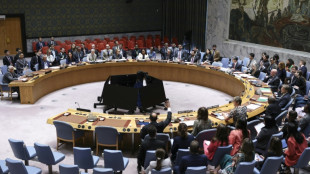
-
 Emotional Marquez in tears after winning seventh MotoGP title
Emotional Marquez in tears after winning seventh MotoGP title
-
Emotional Marquez win seventh MotoGP world championship

-
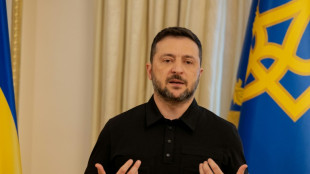 Russia pounds Ukraine with 'hundreds' of drones and missiles: Kyiv
Russia pounds Ukraine with 'hundreds' of drones and missiles: Kyiv
-
Wallabies record-holder Slipper hints Perth could be final Test

-
 Son brace fuels LAFC as Messi frustrated in Miami draw
Son brace fuels LAFC as Messi frustrated in Miami draw
-
US actress-singer Selena Gomez weds music producer Benny Blanco

-
 Pakistani parents rebuff HPV vaccine over infertility fears
Pakistani parents rebuff HPV vaccine over infertility fears
-
Women's cricket set for 'seismic' breakthrough at World Cup

-
 New Zealand fly-half Barrett out of Australia rematch
New Zealand fly-half Barrett out of Australia rematch
-
Moldovans torn between pro-EU and pro-Russia vote in tense polls
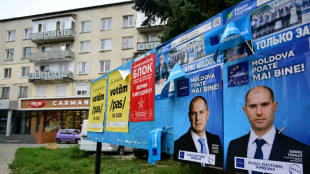
-
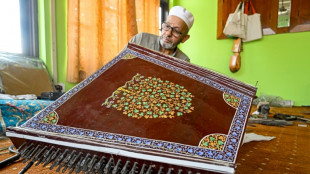 Strings of identity: Kashmir's fading music endures
Strings of identity: Kashmir's fading music endures
-
'Clog the toilet' trolls hit Indian visa holders rushing to US
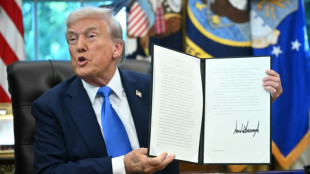
-
 Bradley: USA Ryder Cup disaster part of why crowds angry
Bradley: USA Ryder Cup disaster part of why crowds angry
-
Europe used 'anti-fragile mentality' to cope with Cup hecklers

-
 Unbeaten McIlroy faces winless Scheffler in Ryder Cup singles
Unbeaten McIlroy faces winless Scheffler in Ryder Cup singles
-
Sweeping UN sanctions return to hit Iran after nuclear talks fail
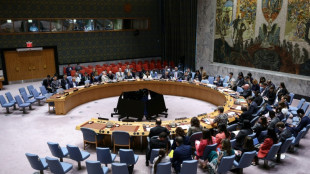
-
 Messi, Miami frustrated in Toronto stalemate
Messi, Miami frustrated in Toronto stalemate
-
Argentina protesters march for victims of live-streamed femicide

-
 Europe shrugs off intense abuse to reach brink of Ryder Cup win
Europe shrugs off intense abuse to reach brink of Ryder Cup win
-
Injury-hit PSG reclaim Ligue 1 top spot ahead of Barcelona clash

-
 Understrength PSG reclaim Ligue 1 top spot ahead of Barcelona clash
Understrength PSG reclaim Ligue 1 top spot ahead of Barcelona clash
-
Argentina protesters seek justice for victims of live-streamed femicide
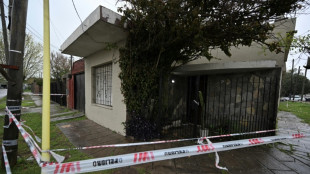
-
 Palhinha rescues point for Tottenham against winless Wolves
Palhinha rescues point for Tottenham against winless Wolves
-
Springbok Feinberg-Mngomezulu an 'incredible talent' - Erasmus

-
 Mitchell backs England to sustain dominance after World Cup triumph
Mitchell backs England to sustain dominance after World Cup triumph
-
Zaporizhzhia nuclear plant off grid; Russia, Ukraine trade blame
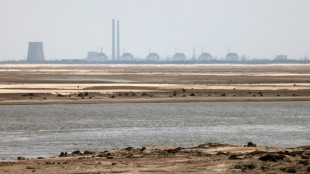
-
 McIlroy fires back at hecklers in intense Ryder Cup atmosphere
McIlroy fires back at hecklers in intense Ryder Cup atmosphere
-
Two women die trying to cross Channel from France
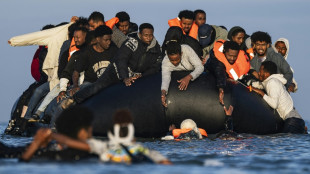
-
 Huge Berlin protest urges end to Gaza war
Huge Berlin protest urges end to Gaza war
-
Liverpool 'deserved' defeat to Crystal Palace, says Slot

-
 Bottega Veneta shows off 'soft functionality' in Milan
Bottega Veneta shows off 'soft functionality' in Milan
-
Maresca blasts careless Chelsea after Brighton defeat

-
 Juve miss out on Serie A summmit with Atalanta draw
Juve miss out on Serie A summmit with Atalanta draw
-
Guardiola salutes dynamic Doku as Man City run riot

-
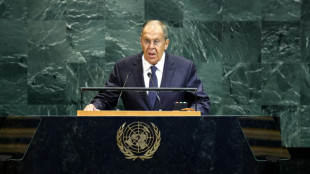 Russia warns West as Ukraine secures Patriot defenses
Russia warns West as Ukraine secures Patriot defenses
-
Ten-man Monaco miss chance to retake top spot in Ligue 1

-
 Feinberg-Mngomezulu scores 37 points as Springboks top table
Feinberg-Mngomezulu scores 37 points as Springboks top table
-
Trump authorizes 'full force' troop deployment in Portland

-
 Matthews at the double as England beat Canada to win Women's Rugby World Cup
Matthews at the double as England beat Canada to win Women's Rugby World Cup
-
Real Madrid 'hurting', deserved to lose derby: Alonso


EU crypto regulation hampered by national flaws
The first EU-wide cryptocurrency regulation was meant to impose some harmony, but disparities in implementation by member countries has allowed companies to exploit a flaw in the system.
Launched in December, Markets in Crypto-Asset (MiCA) insists on service providers obtaining a licence to operate legally in the European Union.
It is issued once specific criteria on anti-money laundering, prevention of terror group financing, IT security and financial soundness have been implemented.
Such a framework aims to protect investors and provide credibility to a sector deemed to be poorly regulated.
Once obtained, a licence grants access to the entire EU market, which encourages some companies to seek authorisation in the most "accommodating" member state.
Crypto experts, speaking to AFP, do not question the integrity of regulatory authorities in, for example, Germany and the Netherlands -- two EU members which account for the majority of the roughly 30 MiCA licences issued so far.
Other bloc nations, including Malta, are in the crosshairs, however, according to these same experts, who preferred to remain anonymous.
They point to, for example, the Mediterranean island hastily issuing licences before the formal implementation of collective standards.
- Rapid approvals -
"From time to time we see arriving on our market, via the (MiCA) passport, products approved by some of our colleagues with, let's say, a rather quick signing off," lamented the president of the financial markets authority in France, Marie-Anne Barbat-Layani, as she addressed the country's Senate in March.
Barbat-Layani noted that EU markets regulator ESMA had launched a "peer review" of an unnamed regulator that is potentially too lax.
When contacted by AFP, the watchdog declined to comment. The Maltese regulator, MFSA, neither confirmed nor denied that it was involved.
An official working under her, Stephane Pontoizeau, added: "There is always the risk of someone trying to find the least demanding entry point into Europe."
Crypto platform OKX, which had planned to hire about 100 staff in France making the country its "anchor" in Europe, ultimately opted for Malta.
Peer Gemini followed the same strategy, having targeted Ireland before changing its mind, citing the "proactive engagement" of the Maltese authorities.
"Malta began welcoming applications several months earlier than other regulators, which meant that we could start the application process earlier, build the teams and infrastructure required to operate under MiCA," noted Gemini's head of Europe, Mark Jennings.
Other countries have been slow to grant approvals, with France having only just issued its first MiCA licence -- to French fintech firm Deblock -- amid accusations that its process is long and complex.
France, however, sees it as granting companies greater time to prepare their application, with the country implementing a transition period through to June 2026.
Pontoizeau insisted the French financial regulator is "determined not to add national requirements to European rules".
According to lawyer Anne Marechal, former legal director at the regulator, there have been "cut-price approvals".
She told AFP that "believing one can save a few weeks and a little money" puts companies' credibility at risk with investors.
- Economic sovereignty -
Obtaining the necessary certification can also require considerable outlay, whether for a MiCA or national licence.
Tangi Le Calvez, founder of the crypto investment firm GOin, has invested about one million euros on obtaining a French licence, which inspired MiCA.
He believes that many players will not be able to complete all the necessary steps.
Already in 2017, EU member Estonia introduced its own mandatory licences for the crypto sector, which resulted in 75 percent of industry participants ceasing operations there, according to the Cointelegraph publication.
While it remains to be seen if a similar outcome will occur in the wake of MiCA, Claire Balva, strategy director at Deblock, highlighted the risk of European crypto firms being replaced by rivals from places with more flexible rules, such as the United States and Dubai.
Given their financial resources, such non-European companies would have no difficulty complying with EU rules, she insisted.
Should "a significant portion of cryptocurrencies held by Europeans" be hosted "on American infrastructure", this also raises "questions of economic sovereignty", added Balva.
O.Schlaepfer--VB

